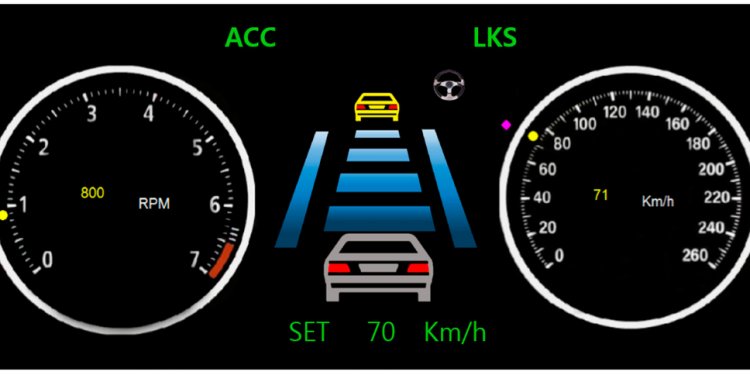
Adaptive Cruise control Systems
Two companies are developing a more advanced cruise control that can automatically adjust a car's speed to maintain a safe following distance. This new technology, called adaptive cruise control, uses forward-looking radar, installed behind the grill of a vehicle, to detect the speed and distance of the vehicle ahead of it.
Adaptive cruise control is similar to conventional cruise control in that it maintains the vehicle's pre-set speed. However, unlike conventional cruise control, this new system can automatically adjust speed in order to maintain a proper distance between vehicles in the same lane. This is achieved through a radar headway sensor, digital signal processor and longitudinal controller. If the lead vehicle slows down, or if another object is detected, the system sends a signal to the engine or braking system to decelerate. Then, when the road is clear, the system will re-accelerate the vehicle back to the set speed.
The 77-GHz Autocruise radar system made by TRW has a forward-looking range of up to 492 feet (150 meters), and operates at vehicle speeds ranging from 18.6 miles per hour (30 kph) to 111 mph (180 kph). Delphi's 76-GHz system can also detect objects as far away as 492 feet, and operates at speeds as low as 20 mph (32 kph).
Adaptive cruise control is just a preview of the technology being developed by both companies. These systems are being enhanced to include collision warning capabilities that will warn drivers through visual and/or audio signals that a collision is imminent and that braking or evasive steering is needed.

















